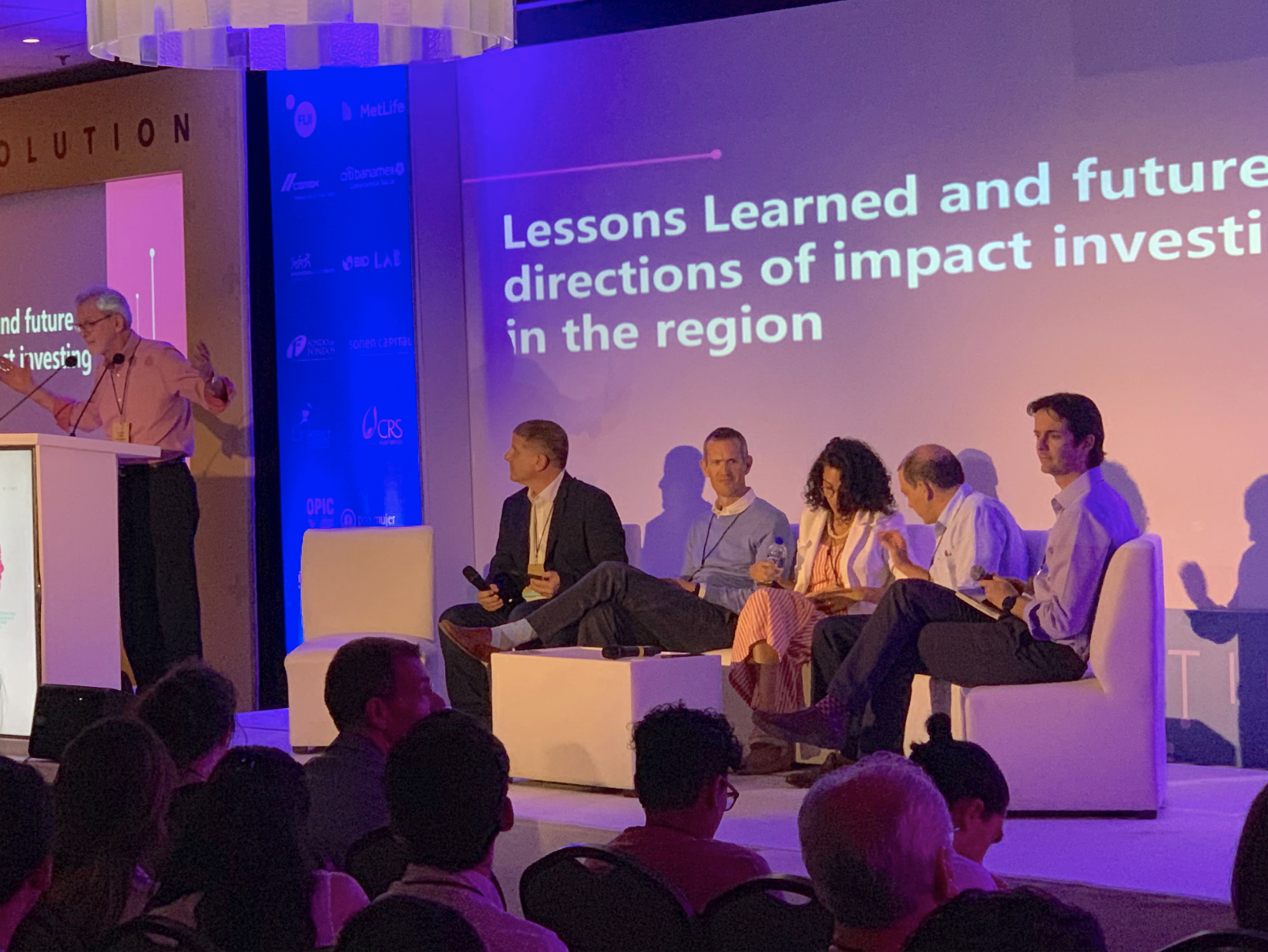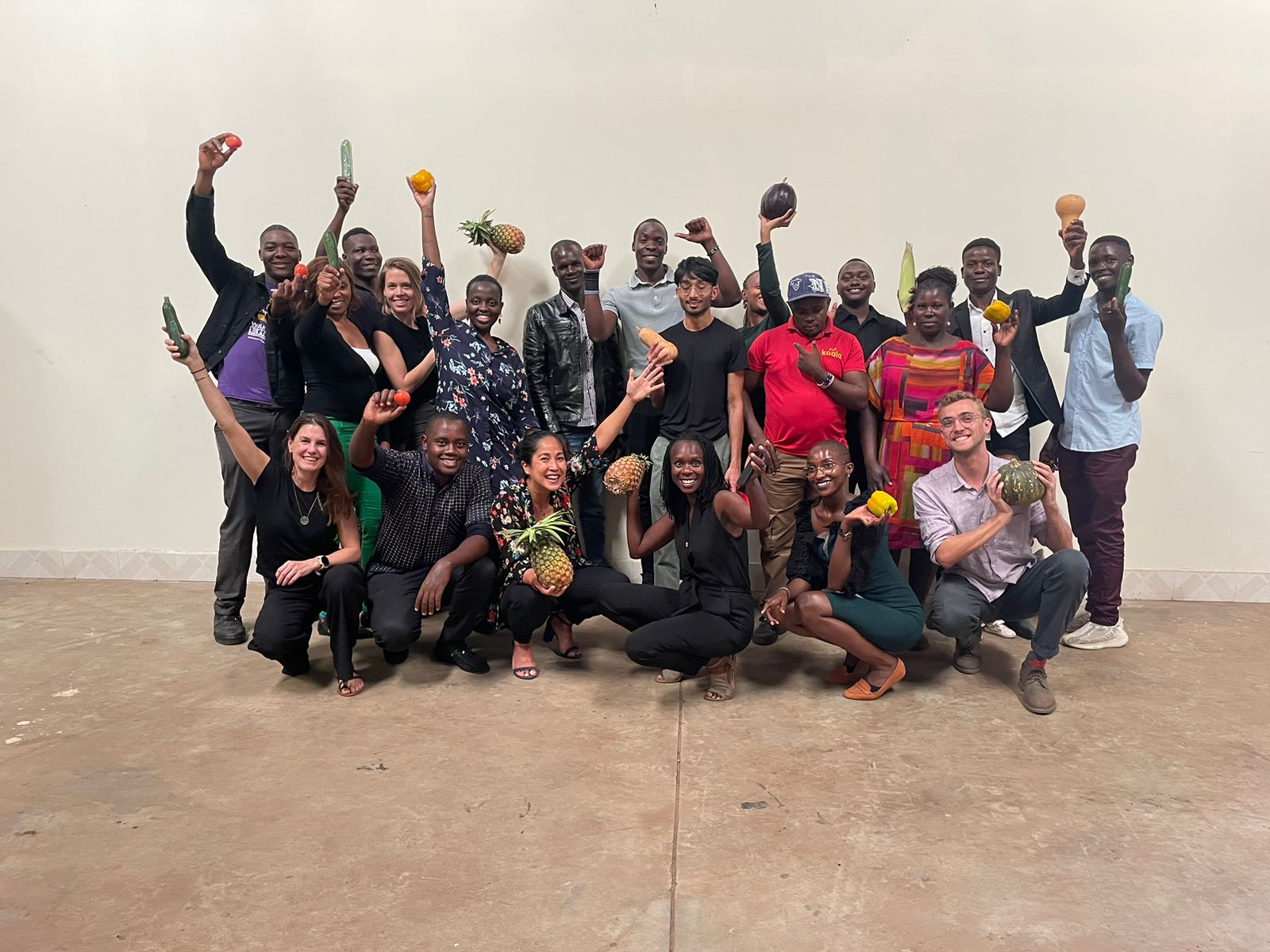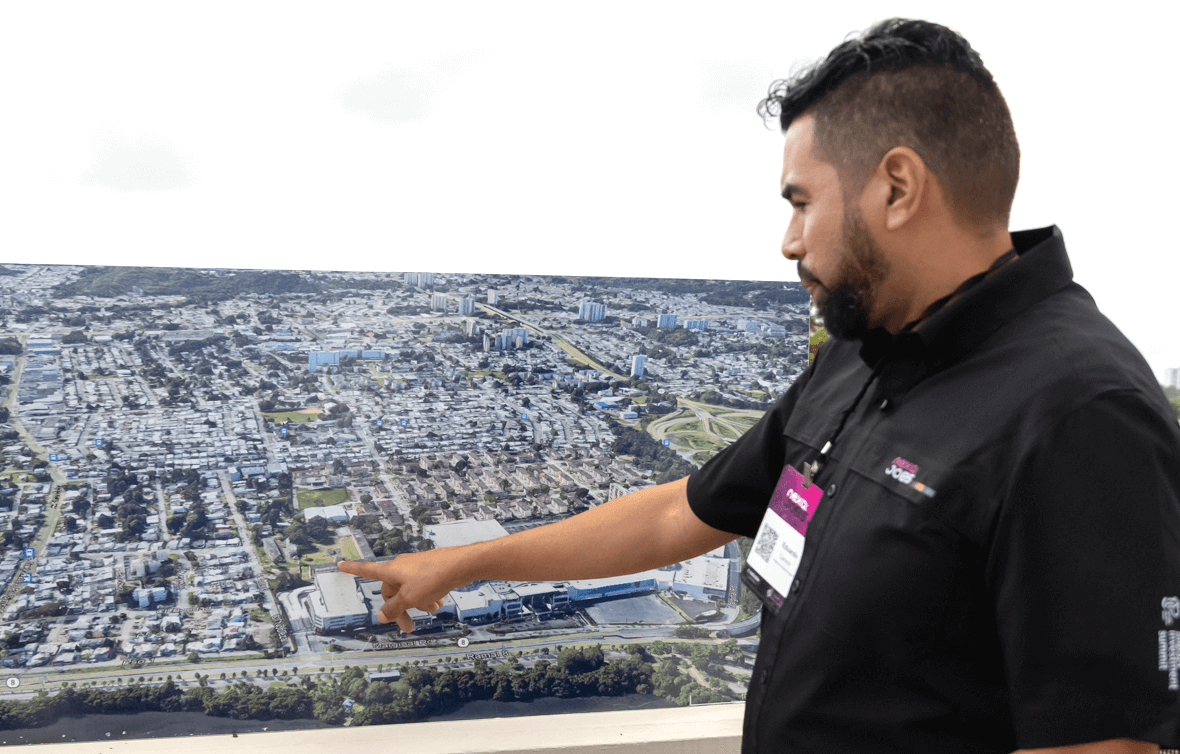Mérida, Mexico – The ninth Foro Latinoamericano de Inversión de Impacto (the Latin American Impact Investing Forum, or simply “the FLII”), just ended in Mérida, Mexico, has a reputation as a wellspring of impact investing activity in one of the most dynamic regions of the world. After this week, ImpactAlpha can report the reputation is well-deserved.
We met dozens of the committed entrepreneurs, fund managers and “capacity builders” creating a vibrant impact investing ecosystem, and enjoyed the welcome of a close-knit community. We met Yucatecan social entrepreneurs and gathered subscribers and friends at our own Agents of Impact in Latin America side event (big thanks to U.S. Consul General Courtney Beale and Halloran Philanthropies’ Tony Carr). Kellogg School of Management students Gabriel Meizner, Jack Bugas, Shifali Gupta, Justin Hendrix and Rohan Jha fanned out across the conference to help ImpactAlpha gather intelligence and make connections. The theme of the FLII was the tech-driven “4th Industrial Revolution,” but as always, it’s all about the people.
Some highlights:
1. Spotlight on entrepreneurs. We’ve met the founders of Mexico’s Maya Bacab, which supports Mayan beekeepers; Clínicas del Azúcar, which launched a chain of diabetes treatment clinics; Klik, a furniture maker that uses recycled plastic; Chile’s carpooling app AllRide; Nicaragua’s Estación Vital, which makes health-screening kiosks; and Uruguay’s Glucosee, which makes a device to help diabetes patients manage their disease. “Social impact doesn’t happen without entrepreneurs.” ImpactAlpha’s David Bank said at the outset of a discussion among impact fund managers.
Capria seeks ‘network effects’ in emerging-market small-business investing
2. Champions of “alternative finance” aren’t so alternative. In 2014, when Uncommon Cacao (then Maya Mountain Cacao) piloted one of the first impact loans structured around seasonal cash-flows, the flexible structure was an outlier. Five years later, proponents of alternative forms of equity and debt financing are popping up all over the impact space (see “Beyond Equity,” above). Salt Lake City-based investment firm Enoch Capital Partners is structuring investments in high-impact companies in Africa and Latin America around revenue-sharing models.
3. Micro is macro. Microfinance institutions were among the original impact investors. Microfinance institutions managed loan portfolios of $114 billion as of 2017. “We’ve been working in microfinancing for 14 years,” said Peter Beez of the Swiss Agency for Development and Cooperation. “In that sense, we’re forerunners to impact investing as it’s currently understood.”
4. Complete coverage. Second wave – and second funds – for Latin America impact fund managers… 50 deals that signal a growing impact investing market in Latin America.
5. Real value. Startups like Frogtek, Laboratoria and Clínicas del Azúcar are delivering basic business infrastructure, job skills, and health services, respectively, to create opportunities and improve livelihoods. Such businesses are key to continued progress in a relatively peaceful, overwhelmingly urban and increasingly middle-class Latin America.
6. Resilient investments. Essential services in local, emerging markets make for high-impact investments. They are also resilient in the face of volatile global markets, says Capria Network’s Will Poole. (see, “Hedge in a volatile market: Companies meeting basic needs in emerging markets”).
7. Changing systems. Impact investments are in fashion, but sustainable procurement by corporations may be a more effective way to drive real systems change.
8. Engineered exits. Financing mechanisms that enable exits through equity redemptions, revenue-based loans and other mechanisms can leave ownership in the hands of mission-driven founders and expand the universe of investable deals in emerging markets. Putting ‘capital at the service of entrepreneurs’ was the spirit of a masterclass on structured exits featuring Acumen, Adobe Capital, Candide Group, EcoEnterprises, IDB Lab and Transform Finance.











